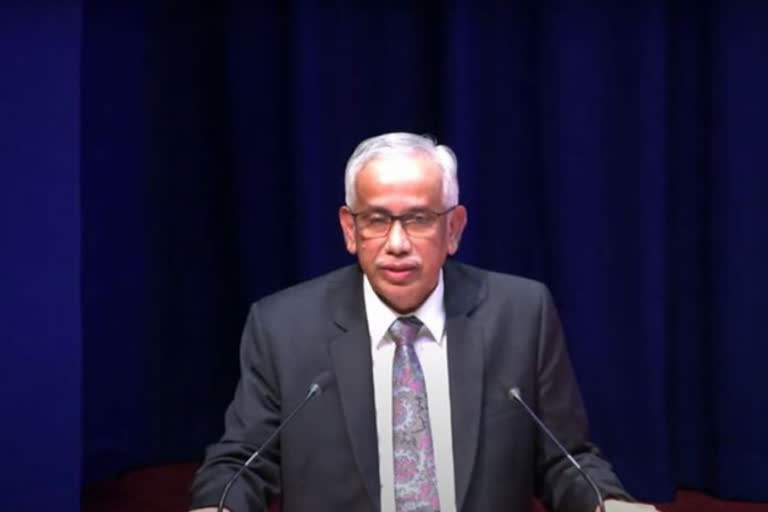New Delhi: In an interesting development, former Supreme Court judge Justice Abdul Nazeer was appointed as the Governor of Andhra Pradesh on Sunday, a month after he retired from the apex Court. Justice Nazeer was the lone minority judge in the bench which gave the judgment in the Ayodhya case and paved the way for the construction of the Ram temple.
Shortly after his appointment, Congress general secretary Jairam Ramesh shared a tweet containing a video of late Arun Jaitley in which the latter talks about 'judgments influencing jobs'. "Pre-retirement judgments are influenced by post-retirement jobs," Jaitley said in that 2012 video. "Adequate proof of this in the past 3-4 years for sure," Jairam Ramesh tweeted.
-
Adequate proof of this in the past 3-4 years for sure https://t.co/33TZaGKr8x
— Jairam Ramesh (@Jairam_Ramesh) February 12, 2023 " class="align-text-top noRightClick twitterSection" data="
">Adequate proof of this in the past 3-4 years for sure https://t.co/33TZaGKr8x
— Jairam Ramesh (@Jairam_Ramesh) February 12, 2023Adequate proof of this in the past 3-4 years for sure https://t.co/33TZaGKr8x
— Jairam Ramesh (@Jairam_Ramesh) February 12, 2023
The Ram Jannabhoomi temple-Babri Masjid was a long-drawn dispute between the two communities which the Supreme Court finally decided on November 9, 2019. Justice S. Abdul Nazeer was one of the five-member Supreme Court Bench that gave the final verdict. He retired in January.
Justice Nazeer led the Constitution Bench that had upheld the 2016 demonetisation process. He had also declared that there was no need to impose additional restrictions on the free speech right of Ministers, MPs, MLAs and leaders.
Also read: Governor Koshyari's resignation accepted by President; Ramesh Bais is new Maharashtra Guv
Born on January 5, 1958, at Beluvai in Karnataka Dakshina Kannada district. Justice Nazeer enrolled as an advocate on February 18, 1983, after completing his LLB degree from the SDM Law College, Mangaluru. He practiced before the Karnataka High Court and was appointed as its Additional Judge on May 12, 2003. He became a permanent judge on September 24, 2004 and was elevated to the Supreme Court on February 17, 2017.
Justice Nazeer was a part of several landmark constitution bench decisions, which included triple talaq, right to privacy, Ayodhya case, and recently on the Centre's 2016 decision on demonetisation, and free speech of lawmakers. Earlier, Justice Nazeer said that the situation in the Indian judiciary today is not as grim as it used to be, though a wrong impression is conveyed due to misinformation.



